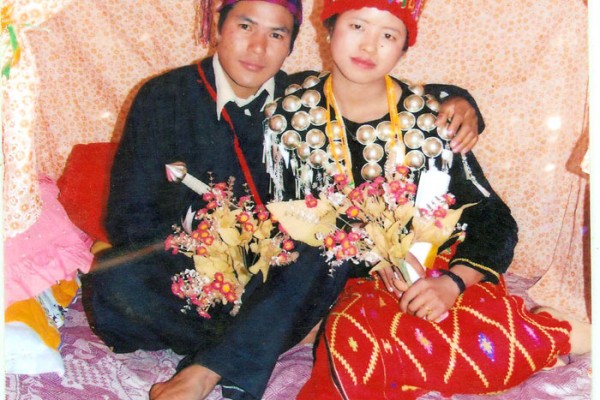Last week, the Kachin Women's Association of Thailand (KWAT) sent President Thein Sein an open letter demanding that he authorize a re-trial for a court appeal made by the family of Sumlut Roi Ja, a Kachin woman arrested by government forces in eastern Kachin state last year.
 According to Roi Ja's family, the young mother was harvesting corn with her husband and father-in-law at her family farm near Mai Ja Yang on Oct. 28, 2011, when soldiers from a nearby military base came and arrested them at gun point.
According to Roi Ja's family, the young mother was harvesting corn with her husband and father-in-law at her family farm near Mai Ja Yang on Oct. 28, 2011, when soldiers from a nearby military base came and arrested them at gun point.
The family was ordered to carry their corn back to the base with the soldiers, according to the testimony of Roi Ja's husband Dau Lum. Roi Ja’s family states that Dau Lum and his 70-year-old father managed to escape captivity, but Roi Ja was taken back to the Mu Bum military outpost operated by Light Infantry Battalion (LIB) No. 321.
Less than a week after she was detained, Roi Ja's father-in-law wrote letters to the Kachin state chief minister, the Bhamo (or Manmaw) District governor, and the army commander of LIB No. 321 detailing what he witnessed and calling for her immediate release. The letters received no response, and Roi Ja's family filed a case with the Supreme court in Naypyidaw.
Roi Ja's husband, Dau Lum, was allegedly prevented from giving his testimony during the court proceeding. According to KWAT, the presiding judge based his ruling entirely on evidence submitted by the Burmese authorities, saying that the judge went so far in his ruling to claim that local authorities were never informed of Roi Ja's disappearance, despite the letters sent by her father-in-law to the local authorities on November 6, 2011.
In its open letter, KWAT wrote to President Thein Sein that the court's decision to dismiss the case is a “blatant perversion of justice [that] brings shame on your government and the independence of your judicial system.”
Located along the China-Burma border and surrounded on three sides by forces from the Kachin Independence Organization (KIO), Mu Bum outpost is a strategic position for the Burmese military, which captured the hilltop base from the KIO in the 1980s.



